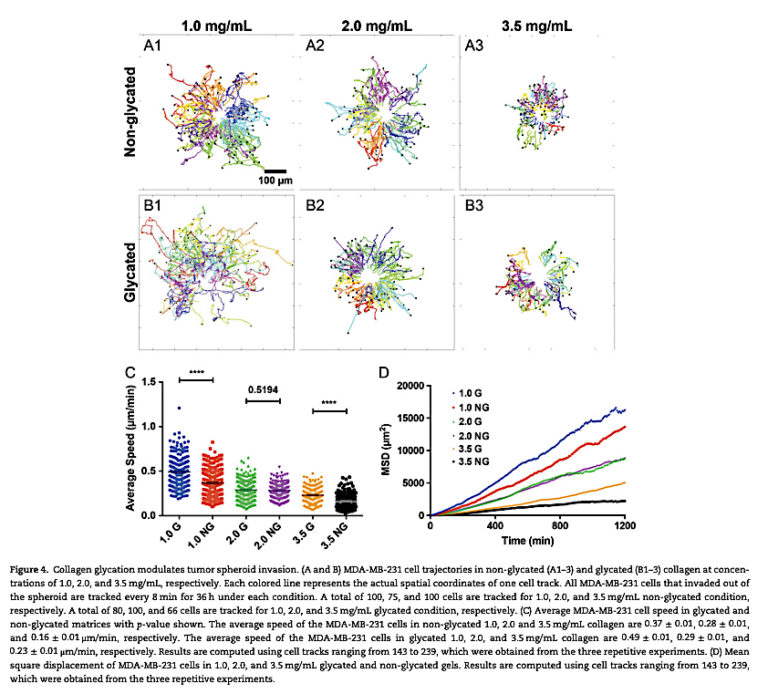Diabetics have been shown to have higher rates of cancer metastasis than non-diabetics. This 2019 study investigates the promotion of tumor cell mobility by collagen matrix glycation as a possible mechanism for the increase.
The high levels of blood glucose chronically present in diabetic patients accelerate glycation — i.e., the binding of sugar molecules to other molecules in the body. As collagen, a major component of the extracellular matrix, becomes glycated, it stiffens and forms into a more porous matrix. One mechanism by which tumor cells move (and so may metastasize from one area to another) is by “pulling” themselves along this collagen matrix.
In this study, the researchers placed single triple-negative breast cancer cells, or cell spheroids, in an artificial matrix comprised of varying concentrations of collagen that had or had not been glycated prior to testing. They found that the mobility of both tumor cells and tumor spheroids was higher in glycated than unglycated collagen, especially when collagen concentrations were highest. This suggests increased collagen glycation may be one mechanism by which tumor cells become more mobile, and so more likely to metastasize, in diabetic patients.

Comments on Glycation of Collagen Matrices Promotes Breast Tumor Cell Invasion
At face value, this paper is pretty deep in the weeds, but it’s making a fairly simple argument. Cancer metastasis depends on cancer cells becoming mobile and so anything that increases cancer mobility may increase the risk of metastasis. We have observed that cancers are more likely to become metastatic in diabetics than non diabetics (citations are presented within this paper), but we didn’t know why. Here, the authors argue diabetes stiffens collagen matrices (through glycation, a direct result of chronically elevated blood glucose levels) and this stiffening increases cancer cell mobility. This particular study is a long way from understanding whether this behavior also occurs in actual human cancers, but it is an intriguing hypothesis to explain an observed phenomenon.
Interesting theory. But I agree that there is still a long way before we know if this mechanism has biological relevance. Cancer metastasis is a very complex process, and I would suspect that cancer cell mutations are more relevant for metastasis than glycation of collagen.
Glycation of Collagen Matrices Promotes Breast Tumor Cell Invasion
2